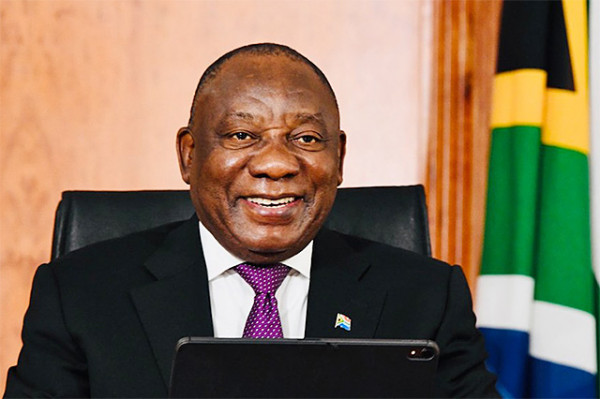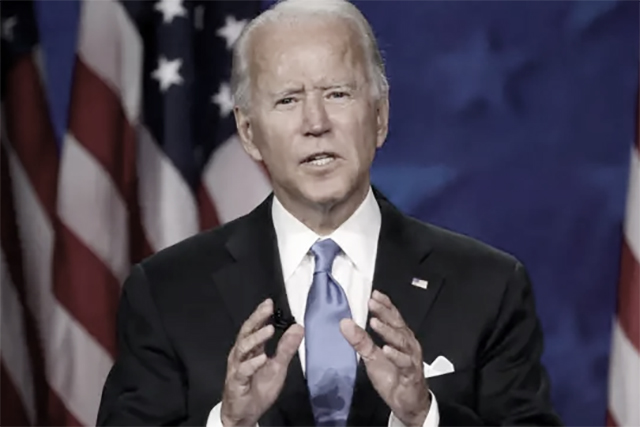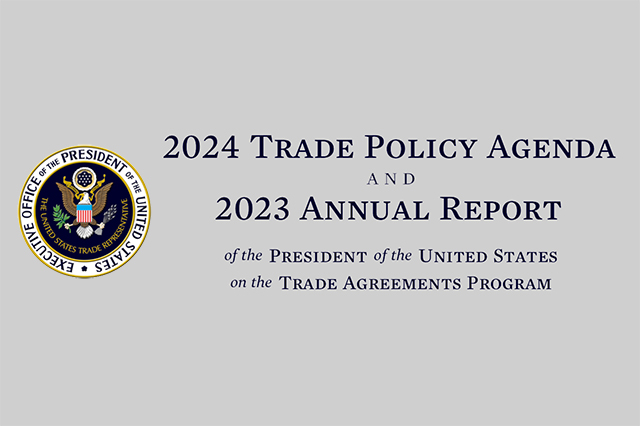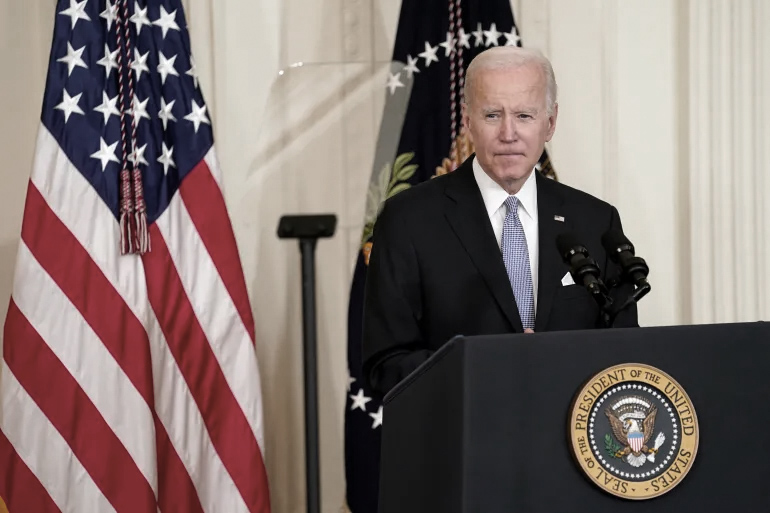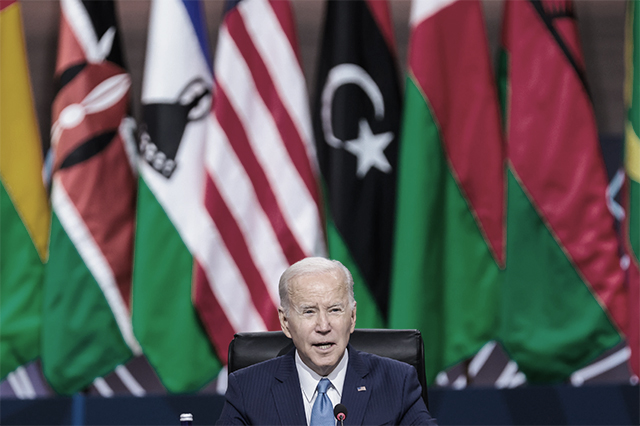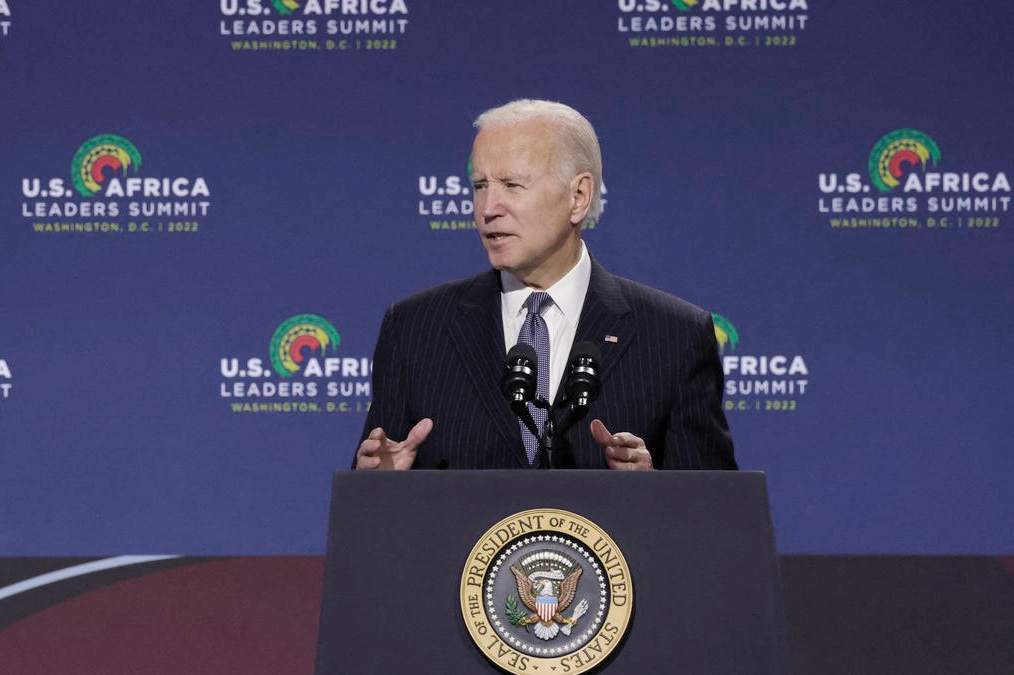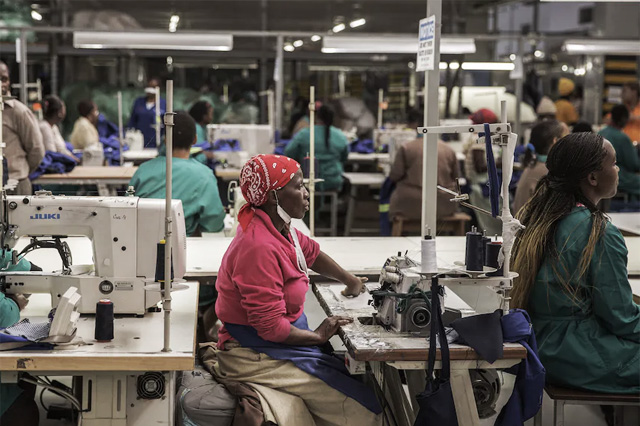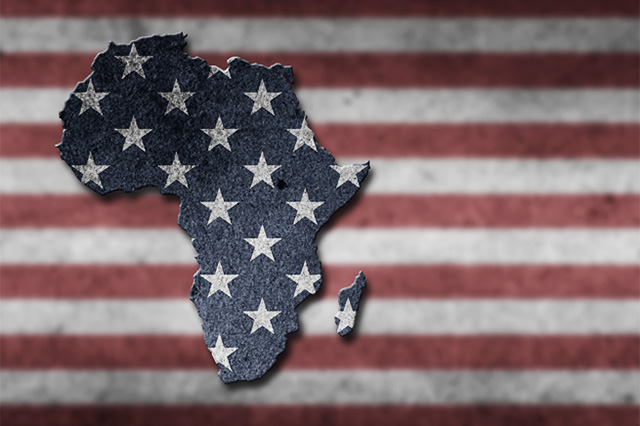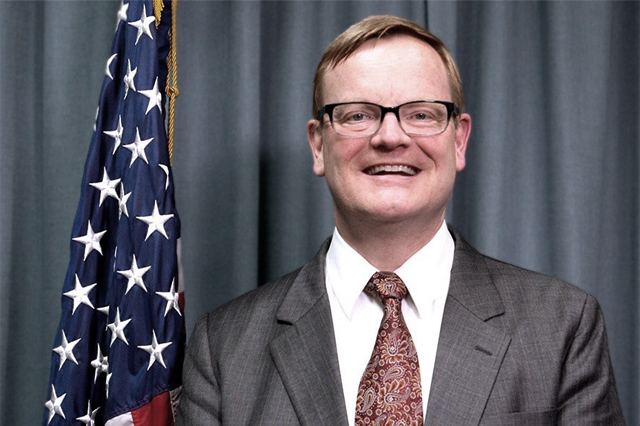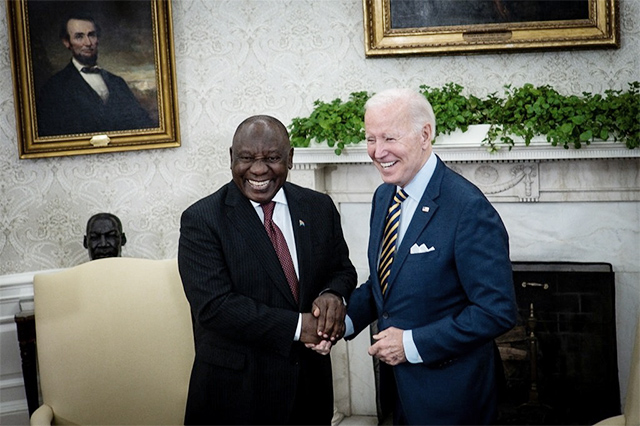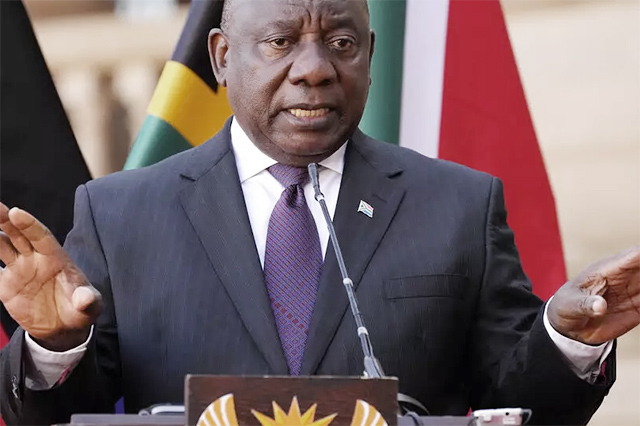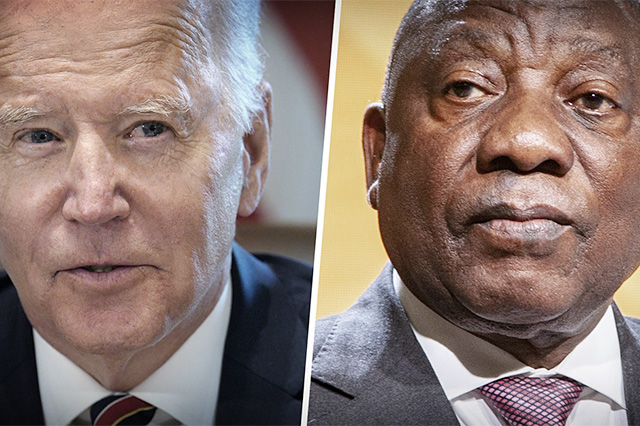President-elect Biden's call to Ramaphosa signals hope for better trade relations with Africa
A phone call between U.S. president-elect Joe Biden and South African President Cyril Ramaphosa early last week has buoyed hopes of strengthening U.S.—Africa relations particularly now when the two continents are seized with efforts to contain the raging novel coronavirus pandemic.
As part of a carousel of congratulatory phone calls with other world leaders, Biden spoke to President Ramaphosa, who is also the current chairman of the African Union (AU), about the need to strengthen ties on a number of fronts with this strategic continent of more than 1.3 billion people.
In a statement, Ramaphosa said he was “hopeful of a strong partnership between the United States and the African continent in promoting peace and stability in international relations and advancing multilateralism." He added, "Biden and Vice President-elect Kamala Harris have identified Africa as a major player in international affairs and in the advancement of multilateralism."
Biden, who was declared winner of the Nov. 3 election, which Donald Trump has not conceded—he has lost nearly 30 court filings related to the election—has struck the right diplomatic chord with Africa winning the hearts of many on the continent. Trump, who is expected to step down on Jan. 20 when Biden is sworn in, did not make a good impression on Africans during his term denigrating them on several occasions including referring to the continent in crude language.
Biden and Trump are worlds apart in terms of attitudes toward the continent. During the telephone conversation, Biden expressed his admiration for the thriving democratic processes inside South Africa, the continent’s biggest economy. Analysts in Africa hope Biden will recalibrate U.S.–Africa trade relations, focusing more on trade reciprocity rather than unilateral trade preference programs.
Even while the analysts express keenness for improved bilateral trade agreements between the U.S. and Africa, they are also concerned about free trade agreements that could undermine the growth of smaller countries, which may not be of enough economic interest to the United States.
Several countries in Africa have recorded some benefits from the U.S. law, the African Growth and Opportunity Act (AGOA)—creating jobs, generating foreign currency and improving the competitiveness of their countries. For example, here in Southern Africa, Namibia with a large livestock base of 7.7 million cattle, sheep, and goats, is the first country in Africa to export beef to the United States after 15 years of working to satisfy safety regulations and logistics.
Namibia is set to export 860 tons of beef to the U.S. this year and prospects are bright for the country to increase its beef exports to 5,000 tons by 2025. The mountain kingdom of Lesotho has also benefited immensely too through the exports of textile and apparel worth more than $250 million to U.S. brands such as Levi’s, Walmart and Old Navy. This has helped to create 40,000 jobs and offered direct and indirect benefits to 13% of Lesotho’s population.
AGOA, which in 2015 was extended to 2025, provides tariff-free access on 6,500 products to 39 countries, ranging from oil and agricultural goods to textiles, farm and handicrafts. Trade quadrupled in value from 2002 to 2008, a year when it reached $100 billion, but fell back in 2017 to just $39 billion, according to figures compiled by the U.S. agency USAID.
A battle for political and economic influence between the U.S. and China is playing out across Africa with Beijing’s growing presence being felt heavily in Africa’s infrastructural development and in the mining sector. It is worthwhile noting that the value of China-Africa trade in 2017 was $148 billion, down from a high of $215 billion in 2014.
According to statistics from the General Administration of Customs of China, in the first half of 2019, China’s total import and export volume with Africa was $101.86 billion, up 2.9% year-on-year. Despite the U.S.–China race, it must be borne in mind that Africa too, is also pressing to add value to its exports and become a new frontier for food production for the world.
Calls for value addition, industrialization and modernization are now the watch words for Africa and any new diplomatic relations with the U.S. should also aim at strengthening these critical arms of development. Africa wants to be self-sufficient in terms of food production and meeting a range of its other needs.
Supporting irrigation infrastructure, clean energy technologies, mining technology, strengthening technology and innovation systems and a wide range of agricultural sectors could be key to winning Africa’s heart. More aid is not the answer to strengthening the U.S.– Africa bilateral relations. Development aid is no substitute for sound economic policy choices.
What Africa needs is trade and support to strengthen its industrialization drive. After a decade of aid fatigue and dwindling development assistance, African countries are realizing that domestic mobilization of resources and financing their own development programs is vital for sustainable development.
Africa’s accumulated knowledge of what works and what does not is now key in fighting issues of poverty and human hardships in Africa. The history of aid in Africa has been documented and shown to be inefficient and at times has proved more of a hindrance to development than help.
A case in point is development aid to Africa that has amounted to more than U.S. $1 trillion since 1950. Today African leaders are scouring world capitals in search of funding to fight Covid-19 but they should know the limits of aid.
Economists say Africa receives more than $60 billion every year in aid and they argue that much of this is not spent on Africans themselves. They say much of this is chewed up by services from donors, such as Western management consultants while around one-fifth of total bilateral aid in 2012, went back to donor countries. or took the form of debt relief.
Aid has its limits and its failure is quite evident particularly now under the shadow of Covid-19. The pumping of this aid has increased the dependency syndrome in the period. Corruption has also frittered the resources while conditions have made the donor-receiver relations more complex and problematic.
Aid has failed to deliver higher economic growth for Africa and new innovative strategies such as industrialization plans, private and public sector reform and domestic mobilization of resources are more crucial than ever now. Promoting innovation, entrepreneurship and own mobilization of resources could also spur development. Whatever, Biden does in recalibrating the U.S.–Africa relations, he must remain sensitive to the changing political,socio and economic dynamics on the continent.


